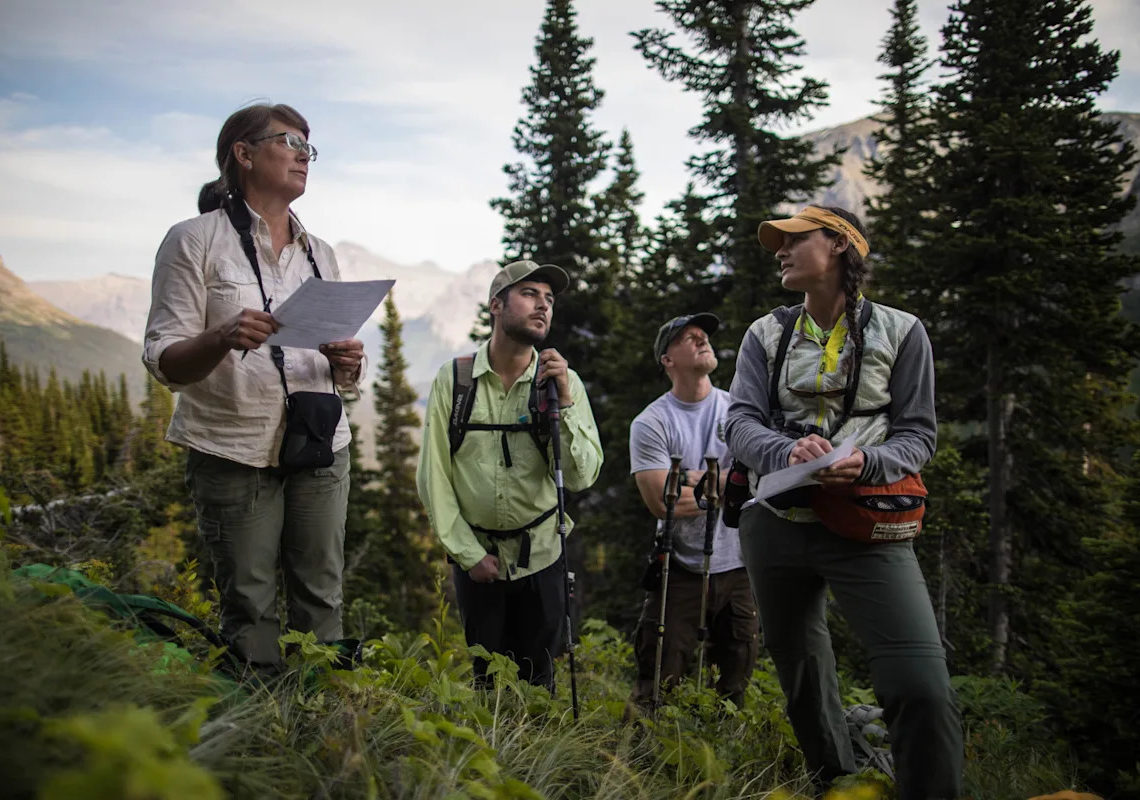This story was originally published by High Country News and is reproduced here as part of the Climate Desk Collaboration.
Stories of struggle flow unceasingly from our public lands — here, a senior botanist pulled from invasive species removal to check campgrounds for unattended fires; there, a trail crew fired, leaving backcountry areas inaccessible after timber blowdowns. Elsewhere, fire crews are bracing for destructive wildland blazes without the necessary backup from extra personnel certified to help.
The Trump administration has already cut thousands of employees from the US Forest Service, Park Service, and Bureau of Land Management, and thousands more workers now fear for their jobs after the Supreme Court gave the administration the green light.
And yet, on the surface, many national parks and even Forest Service campgrounds appear to be managing business as usual.
“Some districts still have recreation crews in place, though others hardly have any, and fire folks are running around trying to clean toilets,” said Mary Erickson, the recently retired Custer Gallatin National Forest supervisor. Senior staff have retired or taken the DOGE “fork in the road” email, leading to, among other things, drastic shortfalls in trail maintenance.
“On top of that, there’s a hiring freeze. But I know the mantra at the local level is, they’re trying to do the best they can do with what they have.”
The national parks are no different, said Jeff Mow, former Glacier National Park superintendent. The toilets might still be cleaned and pumped, but behind the scenes our national treasures are being “hollowed out.”
“They’re not understanding the impacts the cuts have, not just on staffing but also resources and local economies,” Mow said.
Mow spent 32 years with the Park Service, many of them as superintendent of various parks, including Montana’s Glacier National Park and Florissant Fossil Beds National Monument in central Colorado. He retired in 2022 and now serves on the executive council of the Coalition to Protect America’s National Parks and is a board member of National Park Friends Alliance.
Mow sat down with High Country News to explain what we’re seeing this summer and what the recent cuts mean for our public lands’ future.
How have the Park Service cuts hit park units differently?
Many people, when they think of the National Park System, think of large parks like Yellowstone, Yosemite, Glacier, or Grand Teton. These are all parks that have pretty significant staffs. It’s often like running a small city with multiple sewer systems, water systems, and all the law enforcement.
What most people don’t realize is that the majority of National Park Service units are small and medium-sized parks, like Gettysburg or Florissant Fossil Beds. A lot of those small units are minimally staffed, and when these guys lose three or four positions, in some cases, they’ve lost half their staffing.
We keep hearing from visitors to some of the major national parks that not much has changed — that toilets are clean and front desks are operating. Why would that be?
They are putting the focus on visitor services so that the visitors coming aren’t going to see a whole lot of changes from what they might have seen the year before.
But there are two halves to the National Park Service mission. One half is preserving the resources for future generations, and they are taking away the emphasis on preserving the resources.
When I was superintendent, I relied on my local inventory and monitoring network to tell me: Is the park in good shape? Are these invasives coming from this farmer’s field, or this rancher’s field? Do I need to be concerned about this housing development and what it may do, or oil and gas development on my boundary? I didn’t have the expertise in a small park to deal with that. I relied on that expertise from a regional office, or from a program office like our Natural Resource Program Center.
We’re losing that. We’re losing a lot of expertise.
What does that mean over the long term?
You can look at this as a homeowner. If you don’t get the house painted this year, you will probably be fine. But if you don’t get the house painted or fix the broken piece on the house, over five years you may have real problems.
We are losing monitoring, like what are black swifts doing in Glacier? This is the largest population of black swifts in Montana. Or the monitoring of our endangered species, whether grizzly bears or wolverines or bull trout. All those things are getting cut short. And in the long term, we won’t have a lot of that information about our understanding of what is going on under climate change.
So we won’t know how species are doing until it’s potentially too late?
Correct. And when we lose the resource, it’s gone. We may be losing the very purpose for which each unit was established.
As a federal agency, each park has a mission, but then each unit is established for a particular reason. Fossil Buttes has very specific enabling legislation for why it was established, and it’s for understanding and connecting us to the ancient world, which is very different than what the Martin Luther King home does.
Unlike Disneyland, where everything’s replicated, these are almost always (unique): the original fabric in the bedroom where Abraham Lincoln died and its significance in our nation’s history.
Once we lose it, it’s gone.
The post Your favorite national park is struggling to survive appeared first on Vox.



